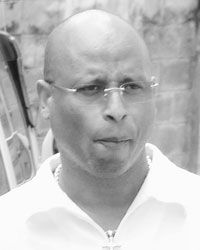
KINGSTOWN, St. Vincent – Two men, one Vincentian and one Bermudian, will know their fate soon after they were found guilty in the nation’s largest money laundering case.
Vincentian businessman Antonio “Que Pasa” Gellizeau and Bermudan sailor Winston Robinson were on Friday found guilty on two charges of money laundering, involving US$1.7 million in cash.
They have been remanded to prison, pending sentencing.
Trinidadian Kent Andrews was acquitted in the case that involved a constitutional motion, which was dismissed in December, and cooperation with Bermudian police.
The case began on April 5, 2008 when Coast Guard officials found the money concealed in vacuum packed bags on board the yacht, Jo Tobin.
Andrews and Robinson were on board the yacht and were charged with breaching the Proceeds of Crime and Money Laundering (Prevention) Act of 2001.
Prosecutors say that Robinson sailed the yacht from Bermuda to St. Vincent.
But Robinson denied the money laundering charges and told the court that he had earned the cash while working in the hotel and fishing industry.
After the guilty verdict was handed down here, Bermuda Police Service issued a statement describing the case as “significant and complex”.
“This conviction resulted from a multi-agency cross border investigation with fellow law enforcement agencies in St Vincent, Bermuda, [the] USA and the Caribbean region. It underscores the value of joined-up partnership working and highlights the value of shared intelligence,” Acting Superintendent Sean Field-Lament said in the statement.
In December, the Court of Appeal dismissed a motion contesting the constitutionality of the nation’s money laundering laws, ruling that lawyers for Andrews, Robinson, and Gellizeau “undoubtedly face a difficult task” in seeking “to assail the constitutional integrity” of the Proceeds of Crime Act.
The yacht was owned by Gellizeau and the court granted an order restraining him from transferring, selling, parting with or otherwise charging all realisable assets owned or controlled by him, whether in his name or not, whether solely or jointly owned or held, whether located in our outside of St. Vincent and the Grenadines.
The men’s lawyers filed constitutional motions contending that the Proceeds of Crime Act and its amendments go beyond the powers (ultra vires) of the Constitution.
They claimed that the laws were an amendment to the Constitution and ought to have been enacted in accordance with section 38, which speaks to alteration of constitutions and Supreme Court Order.
The appellants also claimed that the ex parte procedure associated with the initial stage of seizure deprived a party of the right to be heard. They further claimed that their fundamental rights and freedoms under section 1 of the Constitution were violated.
But High Court judge, Frederick Bruce-Lyle dismissed the claims, holding that they were brought, in part, pursuant to section 1(c) of the Constitution, which, as a general provision, is not justiciable.
The judge also held that the Proceeds of Crime Act did not amend the Constitution.
In their appeal, the appellants contended, among other things, that Bruce-Lyle erred in holding that section 38 of the Constitution does not apply to Acts which affect fundamental rights and freedoms.
But after hearing arguments from both sides, the Court of Appeal dismissed the case.
“In as much as the appellants seek to assail the constitutional integrity of the Proceeds of Crime Act, they undoubtedly face a difficult task. The constitutionality of a parliamentary enactment is presumed unless it is shown to be unconstitutional and the burden on a party seeking to prove that such an enactment is invalid is a heavy one …” the court said in its ruling





